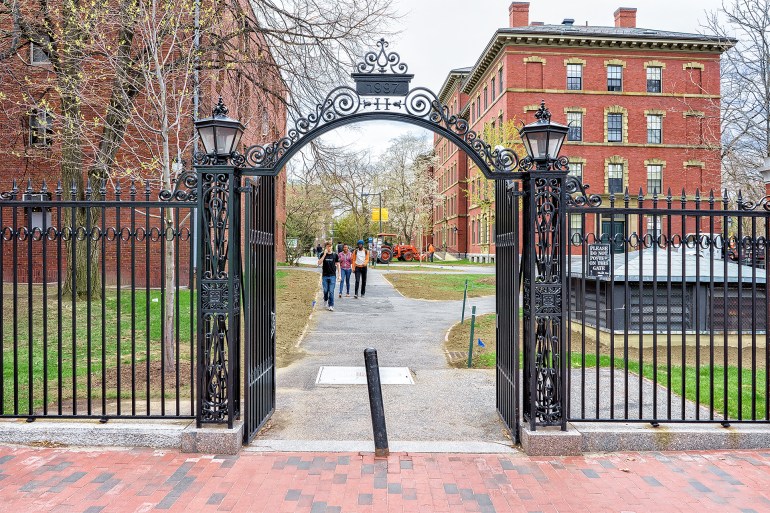The Egyptian actor, Mohamed Ramadan, obtained an honorary doctorate, a few days ago, sparking controversy among the pioneers of social networking sites, especially since many have questioned the reason for granting this certificate, and the academic value it holds.
View this post on Instagram
A post shared by Mohamed Ramadan (@mohamedramadanws)
While the German Cultural Center - the donor of the honorary doctorate of the Egyptian representative - announced that it had withdrawn that certificate, the German embassy in Cairo issued a statement denying Germany's relationship with the donor.
Celebrities who received an honorary doctorate
Granting artists certificates of appreciation for their cultural and artistic efforts and their role in community service is well-known locally and globally.
The artist Yehia El-Fakharani received an honorary doctorate from Cape Breton University in 2017, and the late artist Faten Hamama received an honorary doctorate twice from the American University in Cairo and the American University in Beirut.
Internationally, American actress Meryl Streep has received 4 honorary doctorate degrees, 3 of which are from the most prestigious universities in the country: Harvard, Yale, and Princeton. The Oscar-winning star, Ben Affleck, was twice honored with a doctorate in fine arts in Brown University's 2013 gala in the wake of the massive success of his movie "Argo", which he starred in and directed.
Director Steven Spielberg received an honorary doctorate from Harvard University in 2016.
American actress Meryl Streep received 4 honorary doctorates (Reuters)
Historically, many of the founding fathers of the United States have received honorary degrees from Harvard University such as George Washington, John Adams, Thomas Jefferson and Benjamin Franklin.
Reverend Theodore Hasberg holds the record for the most honorary degrees, having been awarded 150 honorary degrees during his lifetime.
And Hampton University College in New York awarded the unusual honorary doctorate to the puppet character Kermit the Frog in 1986.
Because the term honorary doctorate is circulated on several occasions, it was necessary to clarify what that degree means and its academic and professional value.
What is an honorary doctorate?
Honorary degrees are academic awards granted by prestigious universities to individuals in recognition of their exceptional contributions to society or lifelong achievement in their field.
Honorary degree holders do not have to meet any of the typical academic requirements for a PhD, such as passing exams or submitting a dissertation.
Honorary degrees can be awarded to people from all walks of life, for example, Harvard University has awarded more than 2,300 honorary degrees since its inception in 1692. Since 1892, Temple University has awarded more than 900 honorary degrees.
Harvard University has awarded more than 2,300 honorary degrees since its establishment in 1692 (Shutterstock)
As the title suggests, honorary degrees are awarded to honor an individual, and have nothing to do with academic degrees, or an addition in scholarly references, and there are no academic or professional privileges associated with honorary degrees.
Individuals with honorary doctorates cannot be called "Doctor" by others, nor should it be used in written communications, including business cards.
While honorary doctorates may indicate this honor on their CV, but under the heading Certificates of Appreciation, not Teaching Experience.
What are the types of honorary doctorate?
Each university determines the types of honorary degrees it awards, but they are usually doctorates honoris causa.
Here is a list of some of the most common honorary doctorate degrees:
Doctor of Arts (DA)
Doctorate in Education (.D.Ed)
Doctor of Fine Arts (.DFA)
Doctor of Humane Letters or Doctor of Arts (LHD or sometimes DHL degree)
Doctor of Public Service (.DPS)
Doctor of Science (DS)
How are honorary degree holders selected?
Committees of professors at universities awarding honorary degrees participate in the process of identifying honorees, who have made significant contributions to society or a particular field.
Each university has its own evaluation criteria, and selection committees may have rules on whether candidates can make donations to the university, or provide public services to the community.
While some universities do not accept the award of honorary degrees.
For example, the Massachusetts Institute of Technology (MIT), Stanford University, and the University of Virginia do not offer honorary degrees.
Honorary Doctorate History
An honorary doctorate is denoted by the letters ".hc", which is an abbreviation of the Latin "honis reasona" meaning "for honor."
This means that the degree is awarded as an honor and not after completing certain academic requirements.
Those honored with this title often have no previous connection to the awarding institution.
European universities began awarding degrees "for honours" in the fifteenth century, and the first such degree was awarded at Oxford in 1478 or 1479 to Lionel Woodville, Bishop of Salisbury in England, and his son-in-law, Edward IV.
The honorary degree conferred an academic fellowship, giving the recipient the full privileges of the university, privileges that were more comprehensive than now.
Harvard University has awarded thousands of honorary degrees;
In 1753, Benjamin Franklin was awarded the degree of Master of Arts, generally considered the first true honorary degree awarded by Harvard University.
Helen Keeler was the first woman to receive an honorary doctorate from Harvard in 1955.
Although honorary doctorate holders are not entitled to add the title of Doctor before their names, Benjamin Franklin - who also received honorary doctorates from the University of "St Andrews" in 1759 and Oxford University in 1762 for his scientific achievements - called himself "Doctor Franklin".

